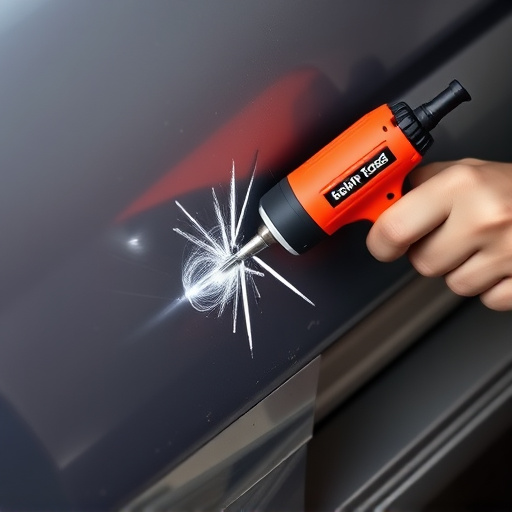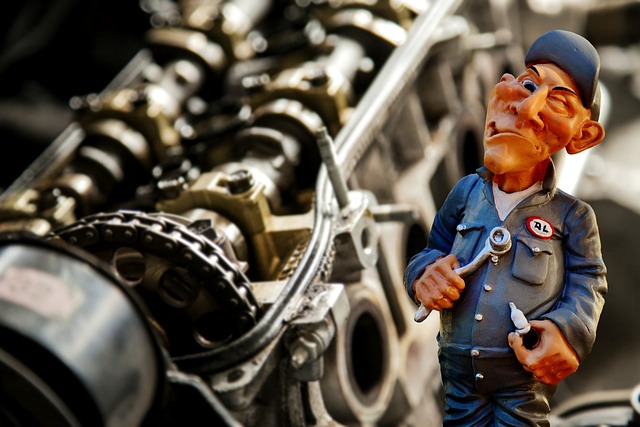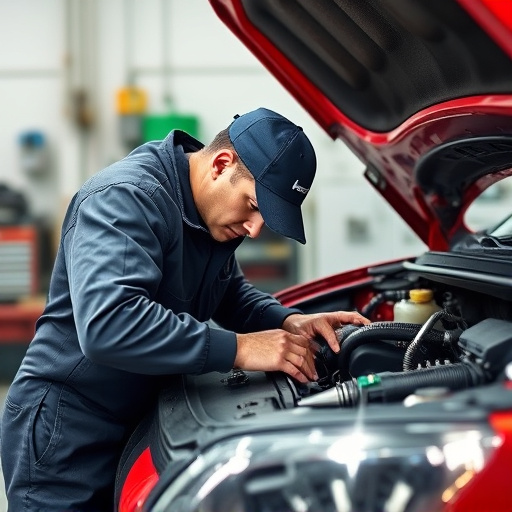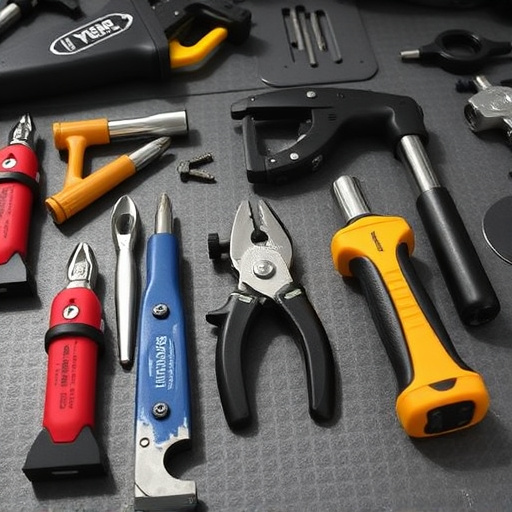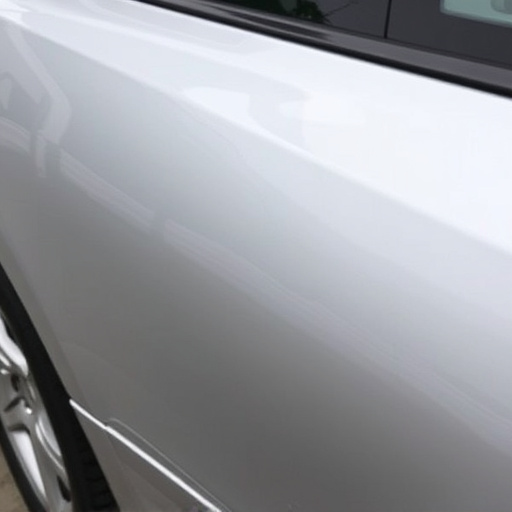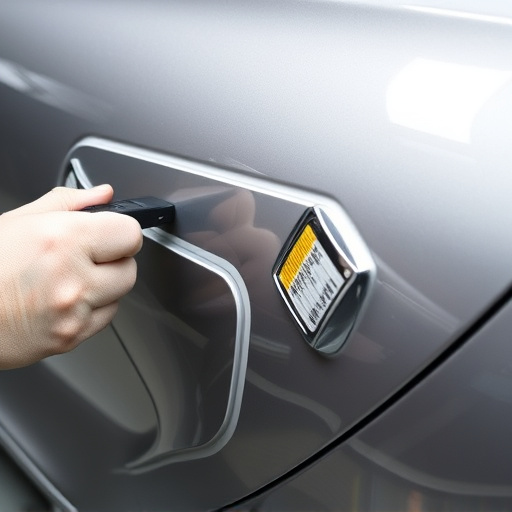In the growing EV market, full panel replacement is vital due to the impact of damage on lightweight construction and technological harmony. The process involves skilled dent removal, precise paint matching, and advanced materials. Innovative technologies streamline repair, reduce costs, and promote sustainable EV maintenance, transforming collision centers into hubs for cutting-edge services and customization.
In today’s electric vehicle (EV) revolution, understanding full panel replacement is crucial. This comprehensive guide explores the evolving needs of full panel repairs for EVs and modern vehicles, offering insights into both practical processes and cutting-edge technology trends. From identifying damage to implementing efficient, sustainable solutions, this article equips readers with essential knowledge for navigating the future of vehicle paneling. Discover the benefits and innovations shaping the industry, ensuring your EV or modern vehicle’s exterior remains a testament to quality and performance.
- Understanding Full Panel Replacement Needs for EVs
- The Process: Step-by-Step Guide to Full Panel Repairs
- Benefits and Future Trends in EV Panel Technology
Understanding Full Panel Replacement Needs for EVs
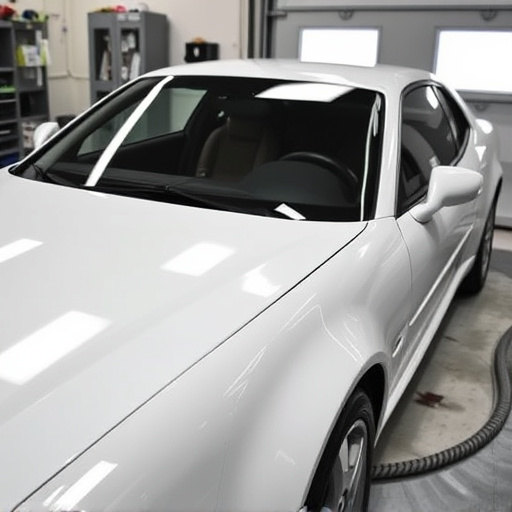
In the rapidly evolving world of electric vehicles (EVs), full panel replacement has become a crucial aspect of vehicle maintenance and repair. As EVs gain popularity, understanding the specific needs for full panel replacement in these modern vehicles is essential. One of the primary considerations is the unique construction of EV bodies, which often feature lightweight materials like aluminum and composite plastics to enhance energy efficiency. Unlike traditional internal combustion engine (ICE) vehicles, EVs have a more compact design, eliminating the need for bulky components, but this also means that any damage or dent can significantly impact the vehicle’s structural integrity and aesthetic appeal.
When it comes to full panel replacement, whether for an EV or a modern vehicle, car dent removal plays a significant role. For EVs, precise and meticulous car paint services are required to match the original factory finish, ensuring both visual perfection and maintaining the vehicle’s technological capabilities. With the increased demand for these vehicles, having access to reliable auto repair near me has become more important than ever. As technology advances, full panel replacement processes are becoming more sophisticated, offering faster turnaround times and superior quality repairs that cater to the high standards set by EV manufacturers.
The Process: Step-by-Step Guide to Full Panel Repairs

The process of carrying out a full panel replacement on electric vehicles (EVs) and modern cars is a meticulous art that requires skill and precision. It involves several key steps to ensure a seamless repair and an immaculate finish. Firstly, the damaged panel is thoroughly inspected to assess the extent of the work needed. This includes identifying any underlying issues like structural damage or misalignment. Once the assessment is complete, the old panel is carefully removed, taking care not to disturb surrounding areas.
The next step is to prepare the surface by removing any debris and ensuring it’s clean and free from contaminants. Auto body services often employ advanced techniques like sandblasting for this stage to achieve an optimal base for vehicle paint repair. After preparation, a new panel, perfectly matched to the vehicle’s specifications, is sourced and fitted. This involves precise alignment and secure fastening methods to maintain the structural integrity of the vehicle. Finally, expert technicians apply high-quality paints, ensuring a flawless finish that blends seamlessly with the rest of the car, making it hard to distinguish the repaired area from the original.
Benefits and Future Trends in EV Panel Technology

The evolution of electric vehicle (EV) technology has brought about significant advancements in panel replacement processes. Full panel replacement for EVs and modern vehicles is becoming increasingly efficient due to the adoption of innovative materials and manufacturing techniques. One of the key benefits is reduced production time and cost, making EV maintenance more accessible and affordable. This advancement is crucial for the widespread adoption of electric mobility, as it addresses a major barrier to entry for both vehicle owners and potential EV buyers.
Looking ahead, the future trends in EV panel technology suggest an even greater emphasis on sustainability and customization. As the market continues to grow, manufacturers are exploring lightweight materials like advanced composites and recycled metals to enhance energy efficiency and performance. Additionally, the integration of smart features, such as integrated sensors and dynamic styling options, will further revolutionize vehicle repair services, transforming auto collision centers into hubs for cutting-edge tire services and personalized customization.
Full panel replacement is a critical aspect of vehicle maintenance, especially for electric vehicles (EVs), where it offers both aesthetic and functional benefits. As EV technology continues to evolve, so does the need for advanced panel repair methods. By understanding the specific requirements of EV panels and implementing efficient repair processes, car owners can ensure their vehicles remain in top condition. The future of full panel replacement looks promising with innovative materials and techniques on the horizon, setting the stage for more sustainable and reliable vehicle repairs.
